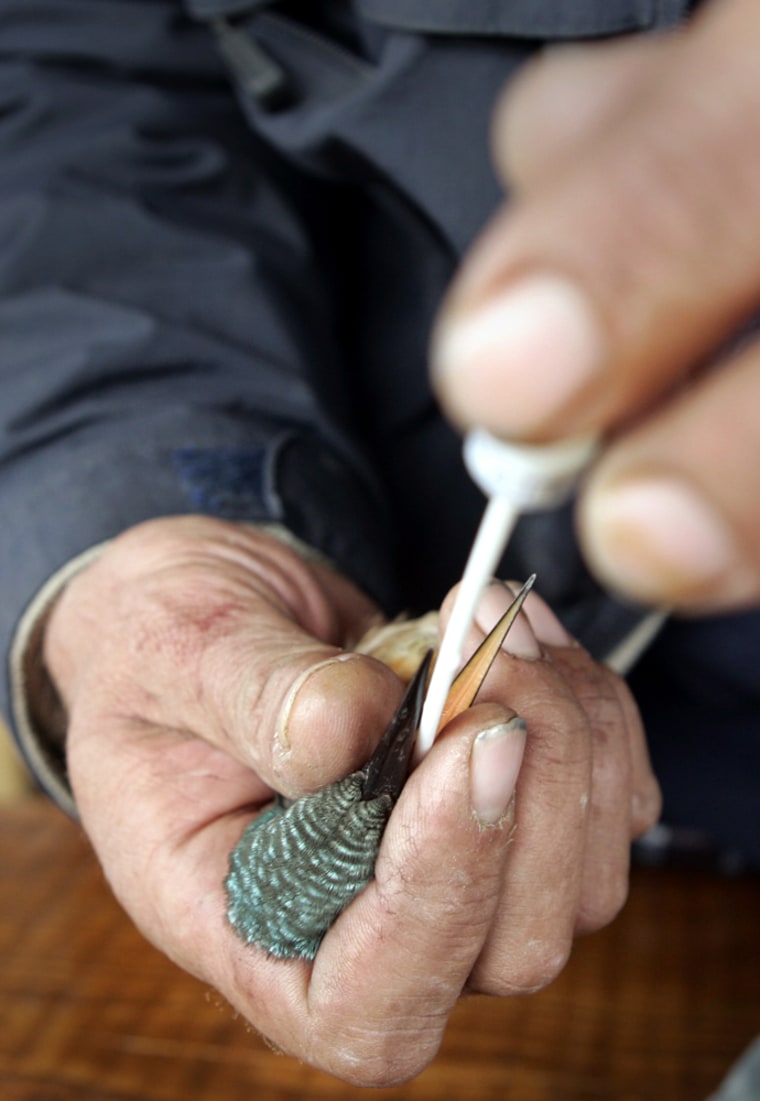Britain confirmed its first case of bird flu since 1992, saying the virus that killed a parrot in quarantine is the same deadly strain that has plagued Asia and recently spread to Europe.
Scientists determined the parrot, imported from South America, died of the H5N1 strain that has devastated poultry stocks and killed 61 people in Asia over the past two years, the Department for Environment, Food and Rural Affairs said on Sunday.
The virus is being spread by migrating wild birds and has recently been found in birds in Russia, Turkey and Romania, spurring efforts around the globe to contain it.
While H5N1 is easily transmitted between birds, it is hard for humans to contract. But experts fear it could mutate into a form of flu that is easily transmitted between humans and cause a pandemic that could kill millions.
Debby Reynolds, DEFRA’s chief veterinarian, said the parrot was likely infected with the virus while it was in quarantine with birds from Taiwan. Tests conducted on the Taiwanese birds that had died were inconclusive, the department said.
DEFRA said the virus most closely matched a strain found in ducks in China earlier this year but was not very similar to strains discovered in Romania and Turkey. The genetic makeup of the virus changes slightly as it spreads, and scientists use such tests to track its migration across the world.
On Monday, Russia’s Emergency Situations Ministry confirmed bird flu in another central region.
Seventy birds in the village of Yuzhny in the Tambov region, about 250 miles southeast of Moscow, have fallen ill with the disease, ministry spokeswoman Veronika Smolskaya said. Eight of the birds died and 48 were slaughtered over the past day, the Interfax news agency reported.
Poultry bans
Bird flu devastated flocks in several regions in Siberia and the Urals during the summer, and last week it hit a village about 200 miles south of Moscow. Preliminary tests confirmed the poultry there had been infected with the H5N1 strain, and authorities culled all 3,000 birds in the village.
On Sunday, the Croatian government promised to compensate villagers and farmers whose birds were slaughtered to prevent the spread of bird flu. About 10,000 domestic birds have been killed in an area near a national park where six swans were found to have been infected with the virus.
The European Commission on Friday said it was preparing a ban on all poultry imports from the country, while some individual European nations have already done so.
In related developments:
- Indonesia’s agriculture minister said Monday the country will revise laws that have been used to prevent health authorities from investigating suspected bird flu outbreaks in commercial poultry farms. When the deadly H5N1 strain first appeared in Indonesia two years ago, the country’s 11 biggest poultry producers blocked access to their farms, hampering efforts to fight the virus. Bird flu has killed three people in Indonesia.
- Sweden said one of four ducks found dead in an area west of Stockholm Friday was infected with bird flu, but not the deadly H5N1 strain.
- The European Union said its bird flu experts will discuss a possible ban on imports of wild birds into the 25-nation bloc on Tuesday. The EU has so far resisted calls to ban all pet bird imports, fearing it could create a black market that could increase the threat of infected birds being smuggled in.
Indian drug maker Cipla Ltd. said Monday that it could produce 50,000 doses of the anti-influenza drug Tamiflu a month starting early next year, as it pressed Roche of Switzerland for a license to manufacture a generic version of the drug.
Roche has been under growing pressure from governments and U.N. Secretary General Kofi Annan to license generic versions of Tamiflu, which is used in treating humans who have bird flu.
